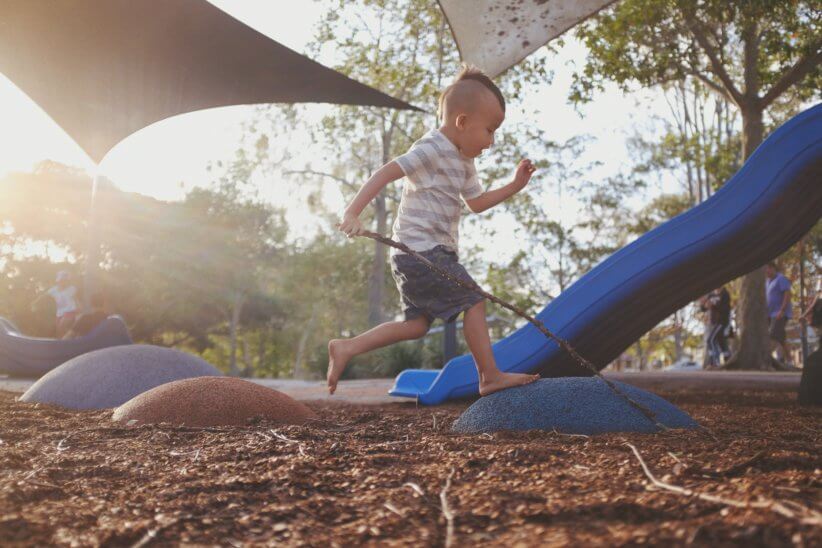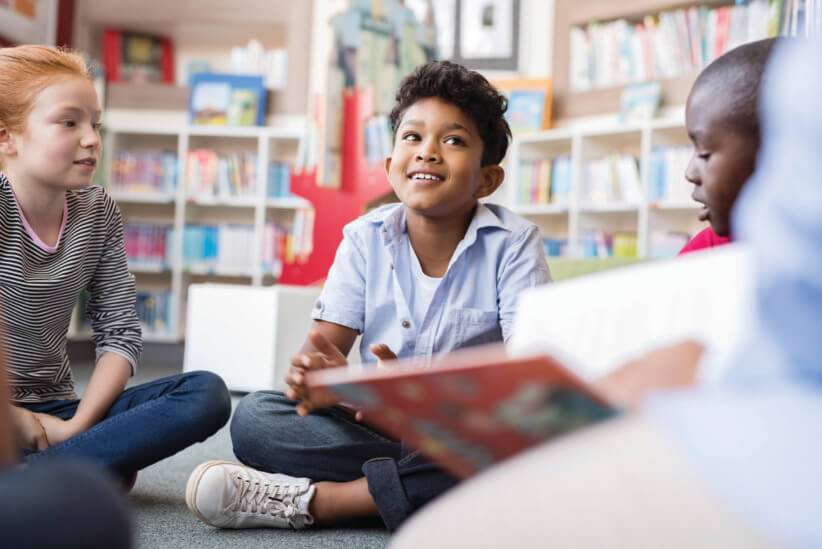
When Your Little One is Non-Verbal
In some cases talking to our child all day isn’t enough to ensure their speech is where it should be. In this Q+A with licensed speech-language pathologist and founder of Raising Little Talkers, Melissa Minney, you will learn what to do as a parent when your little one is still non-verbal.
How common are late talkers?
Late talkers are children between 18-30 months old (although some sources say between 2-4 yrs), who start talking late, but have no other diagnosed disabilities or developmental delays in other cognitive or motor domains.
Research tells us that 70-80% of late talkers will catch up to their peers on their own, however many who appear to catch up continue to have language and literacy difficulties in school. This also means a significant 20-30% will not grow out of the delay without speech therapy.
While we don’t have a crystal ball to know whether a late talker will catch up on their own or not, there are some risk factors that make it less likely:
- Quiet as an infant (little babbling)
- A mild comprehension (understanding) delay for their age
- Uses mostly nouns (names of people, places, things) and few verbs (action words)
- Has a limited number of consonant sounds (eg. p, m, t, n, k, etc.)
- Does not combine two ideas in play or use objects symbolically (pretend play)
- Does not imitate words
- Uses few gestures to communicate
- Difficulty playing with peers (social skills)
- Has a history of persistent ear infections
- Has a parent or sibling with language and/or learning difficulties
Since we don’t know whether a child will catch up or whether they will continue to struggle during the school years, it’s best to seek out speech therapy. That’s why I recommend “check and see” instead of “wait and see.” Early intervention gives each child the best possible chance at closing the gap.
Psst… Check out How to Find the Perfect Dog for Special Needs Families
Are there exercises parents can do with their child at home to help encourage speech?
There are many things parents can do to help encourage speech and language development. One of my favorite tips for parents is to follow their child’s lead. This means allowing your child to engage in activities that genuinely interest them. When a child is genuinely interested, they will stay engaged in the activity longer and are more likely to communicate.
This is hard for some parents because it means letting go of expectations, like how you expect your child to play with a certain toy or read a book from start to finish.
For example, let your child play with the stacking rings by rolling them under the couch (one of my son’s favorite activities!) and add language like “ready, set, go!”, “roll”, “under”, “stop”, “go get it!” “my turn”, etc. If you try to redirect your child to stacking (how you may expect this toy to be used), your child may lose interest in the rings altogether and then you’ve lost a solid opportunity to model language for them.
Another example, let your child skip around in the book you’re trying to read. Allow them to find their favorite page over and over again and model the words for their favorite pictures. You can also allow them to close the book before it’s done and model “close” and “all done” before moving on to the next book.
Can you share tips on how a parent can work on their child’s speech in between speech therapy sessions?
What you do at home will depend on your child’s goals. I strongly urge parents to talk to the treating speech-language pathologist. Ask them what your child’s short term goals are and ask for specific things to do at home during your everyday routines.
Research shows that children learn best in the context of real life activities, like meal time and bath time, with the people most important to them. Working with your child at home is critical to your child’s success.
Embedding speech therapy strategies into your everyday routines is key. These moments happen daily (sometimes multiple times a day) and the built in repetition that helps your child learn the skill.
For example, if your child’s goal is to use more gestures, you might model waving “bye bye” to the water after the bath each night, and wave to the diaper every time you throw it in the trash. Utilizing these routines means your child has lots of opportunities to learn and mimic you.
In social situations it can be challenging for a parent to have to ‘explain’ why their child isn’t talking. Do you have any advice or tips on how to navigate this?
Firstly, if you’re the parent of a child who is still non-verbal, you don’t owe anyone an explanation – it’s a personal decision whether you want to share or not. If you don’t feel like explaining, you can answer in your child’s place by responding to a greeting or answering a question on their behalf.
Similarly to the way you did when they were younger (and talking back was not expected) just make sure you’re only answering if you know what your child would say if they could. You can also encourage them to use a gesture, for example, “Susie said hi, let’s wave back!”. You can also simplify a question for your child.
If you know they are stronger at answering yes/no questions or choice questions (can point to their answer), you can prompt them.
If parents do want to explain why their child isn’t answering or responding when someone greets them, they can say something like “[child’s name] is working on talking and I’m here to help” or “[child’s name] is still learning how to talk and I’m here to help them”.
For speech clarity issues, you can translate what your child said so the other person understands. To take it a step further you can say “[child’s name] is working on their speech sounds, so sometimes I help other people understand what they say”. I like to keep it simple and positive when speaking in front of the child so they feel accepted and supported at their current ability level.
When in private with other parents you can explain that your child is a late talker or has a speech delay, and you are working on it in speech therapy or at home.
Melissa Minney is a licensed speech-language pathologist, mother of two and founder of Raising Little Talkers. Melissa created a positive approach through her 2-hour online program that moves beyond the age-old advice of “just talking to your child all day.”





















